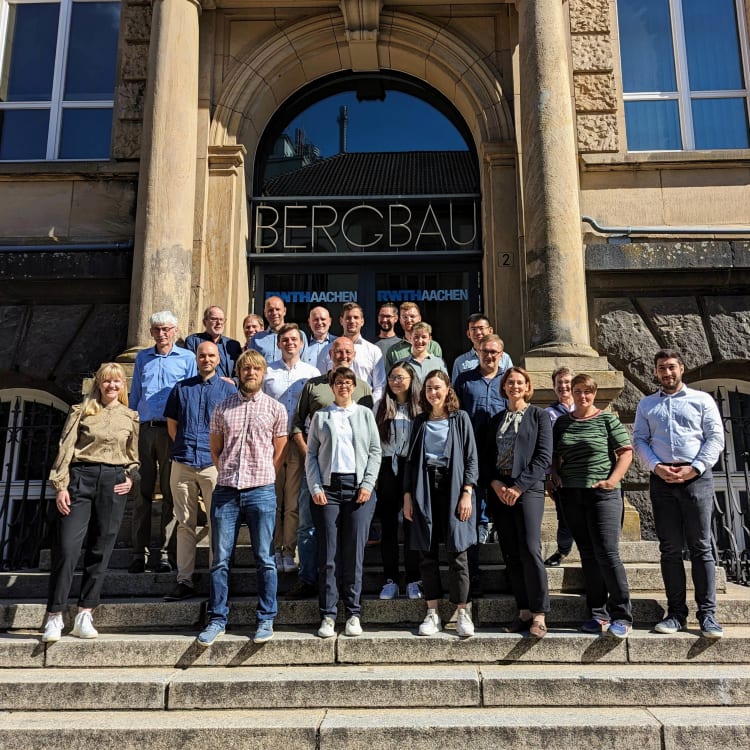
Stadler Anlagenbau GmbH, the globally active German company specialising in the planning, production and assembly of turnkey recycling and sorting plants, sees a functioning circular economy as a roadmap to address the global issue of waste and depletion of natural resources. To reach this goal, effective collaboration between the different elements in the value chain is essential.
“The pressure to reduce waste, recycle more, and move towards a closed-loop circular economy is unprecedented,” states Willi Stadler, CEO of the Stadler Group. “At Stadler, we believe that for progress to be made towards this goal, the effective collaboration of all the members of the value chain is essential – this means the involvement and coordination of industry associations, authorities at local and government level, the European Commission, research institutes and universities, designers and users of the products and packaging, suppliers of sorting plants and technologies like us, and the recycling industry as whole. As a plant and equipment manufacturer, Stadler’s primary role in the chain is to support the recycling industry with our high-performance sorting systems. We believe that, in doing this, we can make a big difference by acting as a link between key elements of the value chain.”
Stadler is constantly searching for new ways of helping the recycling industry expand its scope and effectiveness. To this end, it takes part in research projects to explore solutions to recycle more materials from different waste streams. “Working with partners, such as universities and research institutes, significantly strengthens our position as a plant and equipment manufacturer. It drives innovation by providing access to research and multidisciplinary expertise. Thereby our products can be improved. Since innovation is key in our industry, this is a very important factor,” explains Julia Stadler, CDO of the Stadler Group.

Collaborations across the recycling chain drive progress towards the circular economy
Stadler’s research collaborations break new ground in a wide range of fields, also helping to develop solutions for materials that present complexity for the recycling process. This is the case with textiles, which pose a challenge for recycling due to the extreme variety of materials and are currently predominantly incinerated or sent to landfill. Stadler has designed and built the first industrial-scale fully automated mixed textile waste plant in the world in Sweden and is actively involved in further research. It is taking part in projects such as “EOL-Model”, in which it is playing a key role in tests conducted at the Institute of Textile Technology (ITA) at RWTH Aachen University in collaboration with several companies along the textile recycling chain. The project uses near-infrared (NIR) spectroscopy to analyse textiles with a focus on mixed materials containing polyester. Amrei Becker, researcher at the ITA, explains: "Our tests were made possible thanks to Stadler. We were supported in the evaluation by the company's experienced employees and were thus able to show that the NIR spectra of blended textiles actually differ and that different blends, for example, polyester and cotton, can be detected with accuracy in the low percentages."
Paper is another material that presents its own challenges, and Stadler’s work with RWTH Aachen University on the EnEWA project, which started in 2021, is contributing to unlocking the untapped potential of obtaining recyclable paper from the lightweight packaging, residual and commercial waste streams.
Stadler is also very active in researching other sectors, such as plastic waste, where the process is well established, but still presents large potential for further improvement. Stadler is one of 18 research institutes, associations, and industrial partners participating in the ReVise-UP project funded by the German Federal Ministry of Education and Research (BMBF). The objective of the project, which started in September 2023, is to improve the process efficiency of mechanical recycling of post-consumer plastic packaging waste through intelligent material flow management. It uses inline sensor technologies to track the path of plastic packaging after its use phase. ReVise-UP aims to achieve its objective by developing and demonstrating sensor-based material flow characterization methods on an industrial scale, with the recorded data streams intended to create incentives for better collection and recyclate quality.



